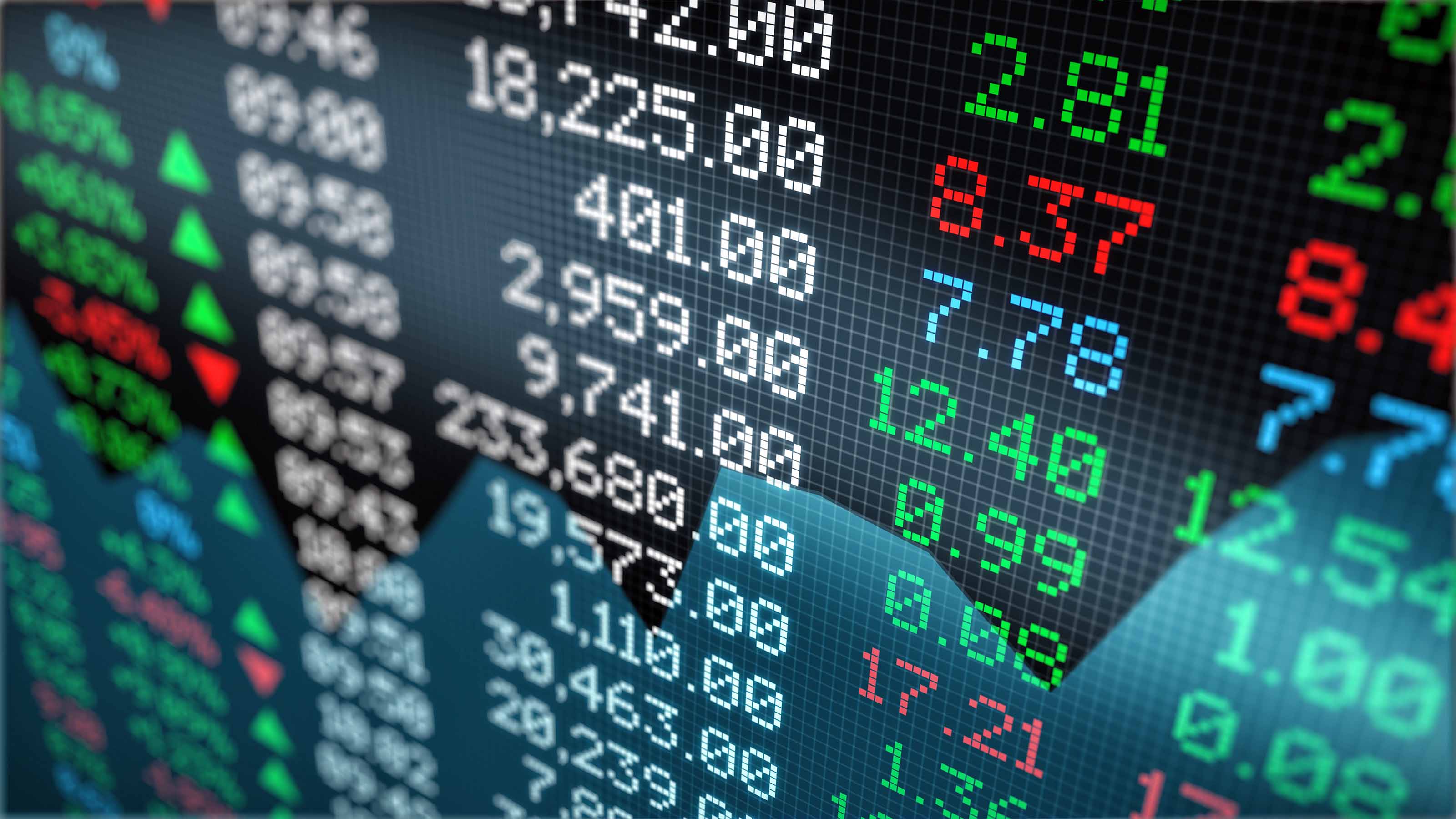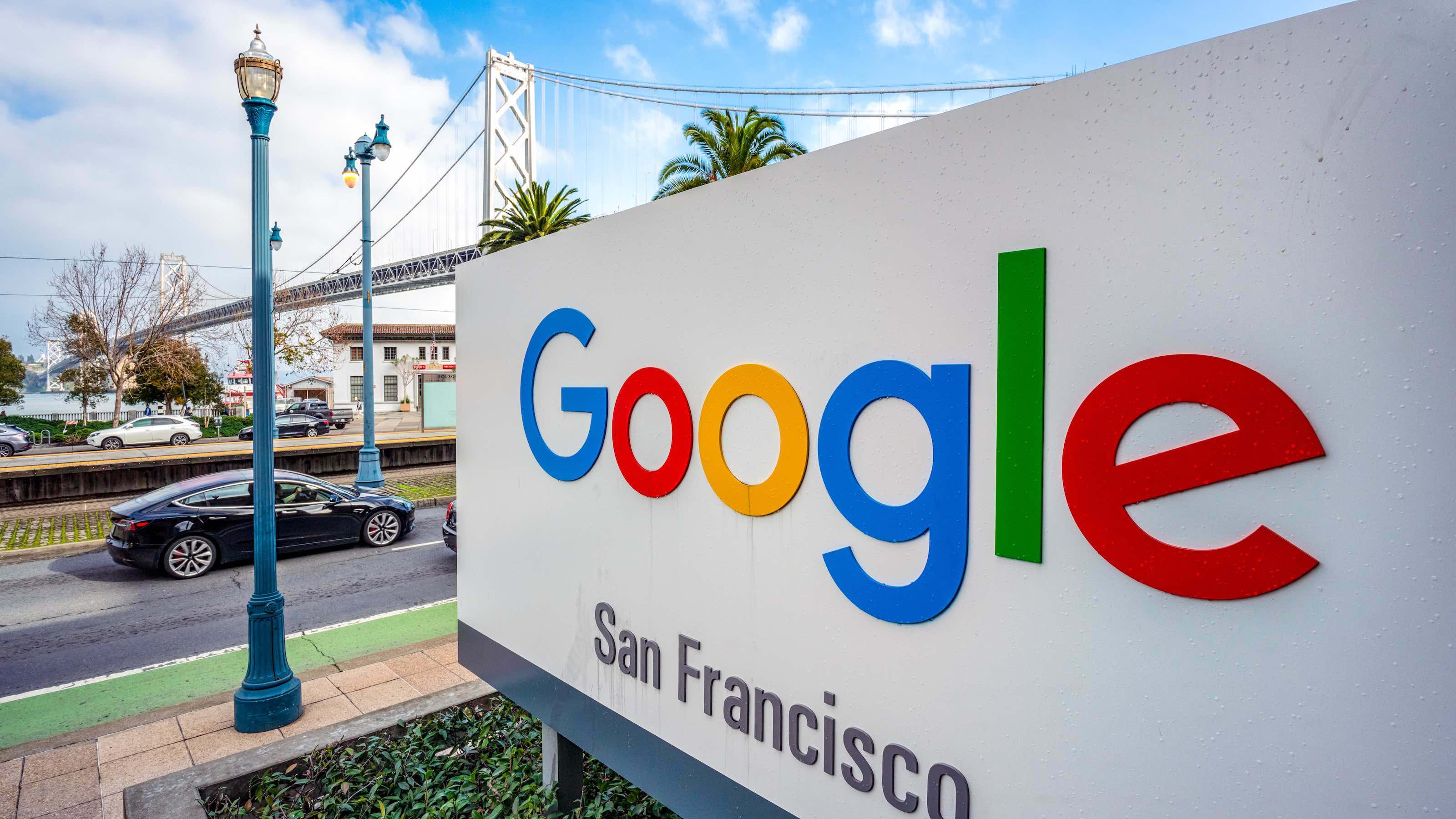10 High-Return Stocks That Should Keep Delivering
Longer-term investors might be familiar with these high-return stocks from the past few years. And good news: They have plenty left in the tank.


Profit and prosper with the best of Kiplinger's advice on investing, taxes, retirement, personal finance and much more. Delivered daily. Enter your email in the box and click Sign Me Up.
You are now subscribed
Your newsletter sign-up was successful
Want to add more newsletters?

Delivered daily
Kiplinger Today
Profit and prosper with the best of Kiplinger's advice on investing, taxes, retirement, personal finance and much more delivered daily. Smart money moves start here.

Sent five days a week
Kiplinger A Step Ahead
Get practical help to make better financial decisions in your everyday life, from spending to savings on top deals.

Delivered daily
Kiplinger Closing Bell
Get today's biggest financial and investing headlines delivered to your inbox every day the U.S. stock market is open.

Sent twice a week
Kiplinger Adviser Intel
Financial pros across the country share best practices and fresh tactics to preserve and grow your wealth.

Delivered weekly
Kiplinger Tax Tips
Trim your federal and state tax bills with practical tax-planning and tax-cutting strategies.

Sent twice a week
Kiplinger Retirement Tips
Your twice-a-week guide to planning and enjoying a financially secure and richly rewarding retirement

Sent bimonthly.
Kiplinger Adviser Angle
Insights for advisers, wealth managers and other financial professionals.

Sent twice a week
Kiplinger Investing Weekly
Your twice-a-week roundup of promising stocks, funds, companies and industries you should consider, ones you should avoid, and why.

Sent weekly for six weeks
Kiplinger Invest for Retirement
Your step-by-step six-part series on how to invest for retirement, from devising a successful strategy to exactly which investments to choose.
The S&P 500 Index has been on a tear since its pandemic-induced bottom in March 2020. The broad-market barometer is up more than 90% in that time, led by a host of high-return stocks that have delivered even more explosive performance.
However, much of the market's run over the past 15 months or so has been driven by monetary and fiscal stimulus, which could stall growth once the Federal Reserve decides to tap the brakes.
Translation: High returns won't be so easily reaped from here on out.
From here, investors are best off taking a longer-term view of growth, targeting companies that have proven capable of delivering electric returns during pre-pandemic times, and that have enough potential left to keep churning out gains as times normalize in the years ahead.
You can start your search with this list of 10 high-return stocks. These picks, which come from a wide variety of sectors, have delivered outsized returns for shareholders during at least the past five years if not longer, and have compelling bull cases signaling that they could continue being high-return investments much farther down the road.
Data is as of July 29. Stocks are listed in reverse order of one-year total return.

S&P Global
- Market value: $102.0 billion
- Sector: Financial Services
- One-year total return: 18.5%
- Three-year total return (annualized): 28.4%
- Five-year total return (annualized): 28.9%
While many investors think of S&P Global (SPGI, $423.57) as the indices company, it generates its most revenue and profits from its ratings business, which provides credit ratings of companies, organizations and individual debt issues.
In the second quarter ended June 30, 2021, SPGI's ratings business had revenue of $1.1 billion, 7% higher than a year earlier. Its operating profit was $729 million, 5% higher than a year earlier. Ratings contributed 51% of its $2.1 billion in sales and 63% of its $1.1 billion in operating income.
The big news at S&P Global is its tentative acquisition of IHS Markit (INFO). The deal is valued at $44 billion in an all-stock transaction that sees shareholders receiving 0.2838 shares of SPGI for every share held in IHS Markit. Following the close of the transaction, SPGI shareholders will own 67.75% of the combined company, with IHS Markit shareholders owning 32.25%.
On May 13, the two companies provided investors with an update on their pending merger. After receiving feedback from regulators, they've decided to put IHS Markit's oil price information services (OPIS) business up for sale. They will also sell IHS Markit's coal, metals and mining business. The companies continue to expect the merger to close by the end of 2021.
During its Q2 2021 conference call at the end of July, CEO Doug Peterson highlighted some of SPGI's newer products and services. One of the products that stands out is Sustainable1, the company's efforts to unite its environmental, social and governance (ESG) efforts under one core brand.
In 2020, S&P Global's ESG business had revenue of $65 million. In the second quarter, ESG revenue was $22 million, 50% ahead of last year. These efforts could create even more tailwinds for this high-return stock.

IQVIA Holdings
- Market value: $47.7 billion
- Sector: Healthcare
- One-year total return: 55.4%
- Three-year total return (annualized): 27.3%
- Five-year total return (annualized): 26.2%
Checking out the annualized returns of IQVIA Holdings (IQV, $248.71), it's easy to see why it has a place on this list of high-return investments. The Connecticut-based company is a provider of analytics, technology solutions and clinical research services to the life sciences industry.
IQVIA's Connected Intelligence platform helps these companies accelerate the development and commercialization of medical treatments by providing the analytical insights necessary to produce faster results.
The company reported Q2 2021 results near the end of July. Revenues grew 36.5% year-over-year to $3.4 billion, while its adjusted EBITDA (earnings before interest, taxes, depreciation and amortization) was $722 million during the quarter, 49.5% higher than a year earlier.
IQV also upped its full-year guidance. It is now projecting revenue growth of at least 19.3% – up from its April forecast of 16.2%. As for adjusted EBITDA, it is expecting growth of 23.7% at the low end in 2021, compared to its previous estimate of 21.6%.
A big buyer of IQV stock is hedge fund HealthCor Management, whose stake in the firm accounted for 5.5% of its 13F holdings at the end of March 2021. Its most recent filing showed the fund held 401,690 shares – down from the 840,740 shares it had at the end of September 2020. Still, at current prices, those 400,000-plus shares are worth $99.9 million.
And with IQV up 38.9% for the year to date, it would not be surprising if HealthCor's 13F for the second quarter showed some increased share sales.
Analysts like IQVIA, too. Of the 21 covering the stock that are tracked by S&P Global Market Intelligence, 15 have a Strong Buy rating, four say Buy, two call it a hold and not a single one deems IQV a Sell or Strong Sell. Plus, the average price target of $275.21 represents expected upside of 10.7% over the next 12 months or so.

FirstService
- Market value: $8.3 billion
- Sector: Real Estate
- One-year total return: 60.8%
- Three-year total return (annualized): 31.5%
- Five-year total return (annualized): 31.3%
FirstService (FSV, $189.01) is one of those high-return stocks that fly under the radar. And it also used to be much bigger.
Founded in 1989 by Jay Hennick, CEO at Colliers International Group (CIGI), FirstService acquired a controlling interest in Vancouver-based commercial real estate broker Colliers Macaulay Nicolls in 2004. Six years later, it acquired Colliers International Group, the world's third-largest real estate services firm.
Finally, in June 2015, FirstService and Colliers International split into two separate companies, with Hennick running Colliers and his chief operating officer (COO), Scott Patterson, taking the helm at FirstService. Both men still run their respective companies.
Of the two companies, FirstService has a better long-term record. However, shareholders who held on to both stocks have done very well for themselves.
What makes FirstService so special?
It operates two business segments: FirstService Residential, North America's largest manager of residential communities, and FirstService Brands, a provider of outsourced property services to both the residential and commercial markets. FirstService Brands includes California Closets, CertaPro Painters, Floor Coverings International and Paul Davis.
While FSV is based in Toronto, it generates 88% of its revenue in the U.S. Its trailing 12-month revenue through March 31 was split evenly between FirstService Residential and FirstService Brands.
In the end, it is the FirstService business model that makes this a high-return investment shareholders have enjoyed for the past two decades – its compound annual growth rate for sales between 2000 and 2020 is 19% – and it is the focus on customer service that will deliver over the next 20 years.
It's not the cheapest stock going – price-to-sales (P/S) is 2.7x versus a five-year average of 1.7 – but it will get you where you want to go over the long haul.

Alphabet
- Market value: $1.8 trillion
- Sector: Communication Services
- 1-year total return: 78.2%
- 3-year total return (annualized): 29.4%
- 5-year total return (annualized): 28.0%
Alphabet (GOOGL, $2,715.55) co-founder Sergey Brin sold both Class A and Class C shares between May 7 and May 11. While the sale netted Brin millions in after-tax proceeds, the important note is that it's the first time he sold Alphabet shares on the open market since November 2017. Since then, its shares have more than doubled.
However, investors needn't worry that Brin has lost confidence in Google and the rest of its businesses. Even billionaires sometimes require a little spending money.
The reality is Alphabet is rock solid as it makes its way through 2021.
In the second quarter, it reported insane results. It had $61.9 billion in revenue, $5.7 billion higher than analysts were expecting. Its core advertising business saw revenues increase by 69% over last year to $50.4 billion. Its YouTube ad revenues in the quarter were $7.0 billion, up 83% year-over-year. Plus, earnings per share were $27.26, 41% higher than the consensus estimate.
Business is so good that Alphabet's board amended its share repurchase program to include both Class A and Class C shares (previously, it just stipulated for the buyback of Class C shares). In the second quarter, it repurchased $12.8 billion in shares, up from $6.8 billion a year earlier. Alphabet paid an average price of $2,370 per share to buy back its stock.
Despite its status as one of the best high-return stocks out there, Alphabet remains solidly in the growth-at-a-reasonable-price (GARP) camp.

The Toro Company
- Market value: $12.0 billion
- Sector: Industrials
- One-year total return: 85.4%
- Three-year total return (annualized): 34.5%
- Five-year total return (annualized): 29.5%
The Toro Company's (TTC, $112.11) history dates back to 1914. It was founded to make engines for the Bull Tractor Company, the number one maker of farm tractors in the U.S. at the time. Investors who play golf are likely familiar with the company's red tractors used to cut and maintain golf courses. TTC created its first fairway mower in 1919.
A hundred years later, it's still going strong, and shareholders are thankful for this high-return stock.
Toro generates 75% of its $3.4 billion in annual revenue from golf courses, landscape contractors, sports fields and other professional markets. The remaining 25% come from residential sales of both its Toro and Lawn-Boy lawn mowers. Approximately 80% of its revenue is in the U.S., while the remainder is generated in international markets such as Canada.
The company focuses on disciplined capital allocation. It balances investing in its growth with debt repayment and returning capital through dividends and share repurchases. In the trailing 12 months, Toro had $700 million in free cash flow. Based on a market cap of $12 billion, it has a free cash flow yield of 5.8%; TTC appears to be a GARP stock despite its price-to-sales ratio of 3.3, considerably higher than its five-year average of 2.7.
In its fiscal second quarter, TTC had revenues of $1.2 billion, 23.6% higher than a year earlier. Its bottom line rose 40.2% year-over-year to $1.29 per share. Given its strong cash position of $497.6 million on the balance sheet, the company repurchased $107.2 millions shares during the three-month period.
Toro expects the remainder of the year to be healthy, leading to 12%-15% sales growth – up from its previous estimate of 6%-8% – and adjusted earnings per share between $3.45 and $3.55, a dime higher than what it forecast in March.

Williams-Sonoma
- Market value: $11.8 billion
- Sector: Consumer Cyclical
- One-year total return: 86.2%
- Three-year total return (annualized): 41.0%
- Five-year total return (annualized): 25.2%
Williams-Sonoma (WSM, $157.16) has four primary brands: Williams-Sonoma, West Elm, Pottery Barn and Pottery Barn Kids & Teen. In 2020, those four brands generated 95% of its $6.8 billion in sales. Of those sales, 70% were online, with only 30% from brick-and-mortar retail.
Leadership starts at the top. There aren't many better CEOs in retail than Williams-Sonoma boss Laura Alber, who's run the company since 2010. That likely makes her one of the longest-tenured CEOs in the industry.
The company leans on women for its success. Approximately 52% of its upper management (vice presidents or higher) are women. Sixty-nine percent of its 21,000 associates are female. And the average tenure of its leadership team is 14 or more years at the company.
This gives the company a decided advantage in operating its omnichannel retail business. The team at Williams-Sonoma understands why e-commerce is vital to its business, and the results show. Since 2000, it has grown its e-commerce sales by 9.5% compounded annually. That's quite a record over 20 years.
However, Alber also understands that people like to get out and sit on a couch or chair before buying. By selecting and retaining only the best real estate locations for its brick-and-mortar operations, its business will likely only get stronger as e-commerce sales grow nationwide.
Currently, Williams-Sonoma has less than a 3% market share of the $250 billion U.S. Home category. The Global Home category is $450 billion and the U.S. Business-to-Business market is another $80 billion. Capturing a 3% market share in these two areas would add almost $16 billion in annual revenue.
The opportunity that lies ahead for Williams-Sonoma is tremendous. Shareholders looking for high-return investments will certainly want to keep WSM on their radar, given the strong performance it's delivered over the past five years.

CBRE Group
- Market value: $32.1 billion
- Sector: Real Estate
- One-year total return: 122.2%
- Three-year total return (annualized): 24.1%
- Five-year total return (annualized): 27.4%
Having previously mentioned one of CBRE Group's (CBRE, $95.56) biggest competitors, it's only appropriate to include the world's largest real estate services firm in our list of 10 high-return investments.
In addition to providing real estate services, it's also the largest commercial real estate developer in the U.S., with more than $129 billion in assets under management.
In CBRE's Q2 2021 results, net revenue was up 30% year-over-year to $3.9 billion. Plus, adjusted earnings grew by 289% to $1.36 per share. In its Advisory Services segment, operating profits jumped 130% from the year prior to $464 million, while its Global Workplace Solutions and Real Estate Investments segments saw operating profits grow by 34% to $170 million and 150% to $385 million, respectively.
The company anticipates that its 2021 adjusted earnings per share will outdo its 2019 pre-COVID results by a large margin. With a strong balance sheet and generating strong free cash flow, shareholders can expect it to turn on the stock buybacks over the remainder of 2021.
In 2020, it repurchased $50 million of its stock. In Q2 2021, it repurchased $88.3 million.

SVB Financial
- Market value: $32.0 billion
- Sector: Financial Services
- One-year total return: 147.7%
- Three-year total return (annualized): 21.3%
- Five-year total return (annualized): 41.4%
SVB Financial (SIVB, $566.71) is on a hot streak at the moment. In July, it announced second-quarter results that were off-the-charts good. The bank's $9.09 earnings per share were more than double what it brought in the year earlier. On top of that, it had a return on equity of 22%, 68% higher than in Q2 2020, and well above its banking peers.
If you're unfamiliar with the California-based financial firm, it is the holding company that operates Silicon Valley Bank. The bank was created more than 35 years ago to help innovators grow their businesses. With $163 billion in assets and $51 billion in loans outstanding, SIVB has working relationships with approximately half the U.S. venture-backed technology and life sciences companies.
In recent years, acquisitions have helped diversify the SVB business model. It now has four operating segments: Silicon Valley Bank, SVB Private Bank (private banking and wealth management), SVB Capital (venture investment management) and SVB Leerink (investment banking in healthcare and life sciences) to help grow the overall business.
Since the end of 2017, it has grown its total assets by 220% through a combination of increased loans and venture capital investments. It continues to expand internationally, after opening its first branch in the U.K. in 2004. In the 17 years since, it's added a strong presence in China, Israel, Hong Kong, Canada and several countries in Europe.
As a result of all this hard work, SVB Financial has been one of the best high-return stocks to own in recent years. And it's possible this strong performance will continue. SVIB is a bank that thinks outside the box and shareholders consistently win as a result.

Companhia Siderúrgica Nacional
- Market value: $13.1 billion
- Sector: Basic Materials
- One-year total return: 287.6%
- Three-year total return (annualized): 558.3%
- Five-year total return (annualized): 23.4%
The history of Companhia Siderúrgica Nacional (SID, $9.49) dates back to 1941, when then-president of Brazil, Getúlio Vargas, created the multinational that today is a vertically integrated steel producer with operations also in mining, cement, logistics and energy.
In 1993, the Brazilian company, which goes by CSN for short, floated its shares on the Rio de Janeiro Stock Exchange. As part of the public offering, the Brazilian government sold its 91% stake in the business. SID used the proceeds to improve the quality of its products and business efficiency.
In the first quarter of 2021, CSN reported a record quarterly adjusted EBITDA of 5.8 billion Brazilian real ($1.1 billion) and a 47.7% EBITDA margin. Over the past five quarters, its adjusted EBITDA margin has doubled from 24% in Q4 2019.
In the first quarter, its free cash flow was 3.5 billion Brazilian real ($690 million) from 6.7 billion Brazilian Real ($1.3 billion) in sales. The latter metric is 32% higher than in the fourth quarter and 91% higher than Q1 2020.
In terms of its balance sheet, it has net debt of 20.5 billion Brazilian real ($4.0 billion) or just 31% of its $13.1 billion market capitalization.
CSN is controlled by the Brazil conglomerate Vicunha Acos, which owns 49.2% of the company. The Steinbruch family, one of the wealthiest in Brazil, owns Vicunha. It initially gained its wealth through the textile business before diversifying into steel and banking in the 1990s.
It's hard to argue with SID's place on this list of high-return stocks, given its performance over the past five years.

MicroStrategy
- Market value: $6.1 billion
- Sector: Technology
- One-year total return: 409.2%
- Three-year total return (annualized): 69.1%
- Five-year total return (annualized): 29.0%
MicroStrategy (MSTR, $625.01) operates a business intelligence firm that provides companies with enterprise analytics and mobility software. It makes money by selling cloud-based subscriptions to these businesses for access to its analytics platform.
Founder and CEO Michael Saylor is said to have invented the concept of relational analytics, or the science of human social networks. A bright man, Saylor also started Alarm.com (ALRM) before selling it in 2013 for $110 million. However, in recent times, he is more likely known for his support of Bitcoin.
Saylor doesn't just believe in Bitcoin. He's bought almost 92,000 Bitcoins for MicroStrategy's balance sheet. In the first quarter alone, MicroStrategy bought 20,857 Bitcoins for $1.09 billion in cash. That's about $52,260 per coin. The carrying value of its 91,326 Bitcoins at the end of March was $1.95 billion. It did not sell any of its Bitcoins in the first quarter.
Saylor is so convinced about Bitcoin's future, he's included it in the company's overview. In addition to its strategy of growing its enterprise analytics software business, MSTR's other initiative is to buy and hold Bitcoin. Simple and elegant.
Saylor has been vocal about his thoughts on Bitcoin. "... #Bitcoin is the most powerful & disruptive technology of our lifetime, why it is irrational & tragic to dismiss it as speculative fervor, how it is good for the health & prosperity of both the US & the rest of the world," he tweeted in April.
When Tesla (TSLA) said it acquired $1.5 billion in Bitcoin earlier this year, Saylor told Elon Musk he should have bought $10 billion. And even after Musk suspended his company's policy of accepting Bitcoin in May because of environmental concerns, MicroStrategy bought $15 million more.
You can't teach this kind of commitment.
Profit and prosper with the best of Kiplinger's advice on investing, taxes, retirement, personal finance and much more. Delivered daily. Enter your email in the box and click Sign Me Up.

Will has written professionally for investment and finance publications in both the U.S. and Canada since 2004. A native of Toronto, Canada, his sole objective is to help people become better and more informed investors. Fascinated by how companies make money, he's a keen student of business history. Married and now living in Halifax, Nova Scotia, he's also got an interest in equity and debt crowdfunding.
-
 Nasdaq Leads a Rocky Risk-On Rally: Stock Market Today
Nasdaq Leads a Rocky Risk-On Rally: Stock Market TodayAnother worrying bout of late-session weakness couldn't take down the main equity indexes on Wednesday.
-
 Quiz: Do You Know How to Avoid the "Medigap Trap?"
Quiz: Do You Know How to Avoid the "Medigap Trap?"Quiz Test your basic knowledge of the "Medigap Trap" in our quick quiz.
-
 5 Top Tax-Efficient Mutual Funds for Smarter Investing
5 Top Tax-Efficient Mutual Funds for Smarter InvestingMutual funds are many things, but "tax-friendly" usually isn't one of them. These are the exceptions.
-
 Nasdaq Leads a Rocky Risk-On Rally: Stock Market Today
Nasdaq Leads a Rocky Risk-On Rally: Stock Market TodayAnother worrying bout of late-session weakness couldn't take down the main equity indexes on Wednesday.
-
 Stocks Make More Big Up and Down Moves: Stock Market Today
Stocks Make More Big Up and Down Moves: Stock Market TodayThe impact of revolutionary technology has replaced world-changing trade policy as the major variable for markets, with mixed results for sectors and stocks.
-
 Small Caps Step Up, Tech Is Still a Drag: Stock Market Today
Small Caps Step Up, Tech Is Still a Drag: Stock Market TodayEarly strength gave way to AI skepticism again as a volatile trading week ended on another mixed note.
-
 AI Unwind Takes 2% Off the Nasdaq: Stock Market Today
AI Unwind Takes 2% Off the Nasdaq: Stock Market TodayMarkets are paying more and more attention to hyperscalers' plans to spend more and more money on artificial intelligence.
-
 Big Change Coming to the Federal Reserve
Big Change Coming to the Federal ReserveThe Lette A new chairman of the Federal Reserve has been named. What will this mean for the economy?
-
 Strong Jobs Report Leaves Markets Flat: Stock Market Today
Strong Jobs Report Leaves Markets Flat: Stock Market TodayInvestors, traders and speculators are taking time to weigh the latest labor market data against their hopes for lower interest rates.
-
 Job Growth Sizzled to Start the Year. Here's Why It's Unlikely to Impact Interest Rates
Job Growth Sizzled to Start the Year. Here's Why It's Unlikely to Impact Interest RatesThe January jobs report came in much stronger than expected and the unemployment rate ticked lower to start 2026, easing worries about a slowing labor market.
-
 Dow Hits New High Ahead of January Jobs Report: Stock Market Today
Dow Hits New High Ahead of January Jobs Report: Stock Market TodayA weak reading on December retail sales was in focus ahead of Wednesday's delayed labor market data.
